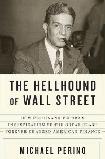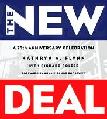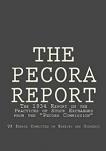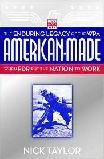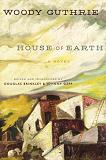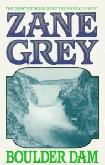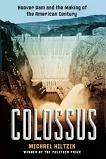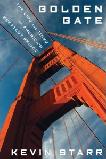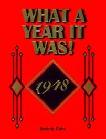
World War Two
War Film Festival - World War II Movies
at Magic Lantern Video & Book Store
Propaganda Film Festival - World War II Section
at Magic Lantern Video & Book Store
- 1939:
- Nestlé put Toll House Real Semi-Sweet Chocolate Morsels (i.e. chocolate chips) on the market.
- Herman W. Lay founded H.W. Lay Corp. in Atlanta, Georgia as a distributor of potato chips; changed product name to Lay's Potato Chips in 1944.
- First publication of "Rudolph The Red-Nosed Reindeer" by Robert L.May; department store Montgomery Ward gave away 2.5 million free copies of the 32-page booklet in the first year.
- 1939 April 1: Gen. Francisco Franco went on radio to declare victory in the Spanish Civil War; his government was recognized same day by the United States.
- 1939 April 7: Birthday of movie director Francis Ford Coppola in Detroit, Michigan; he is most-famous for the
'The Godfather Saga' [1972, 1974, 1990]
and for "Apocalypse Now" [1979]
- 1939 April 14: Publication of John Steinbeck's classic novel "The Grapes of Wrath", which won the Pulitzer Prize for The Novel and was made into the Oscar-winning John Ford movie "The Grapes of Wrath" [1940].
- 1939 May: Crimefighter Batman debuted in Detective Comics issue #27; company is now D.C. Entertainment, a subsidiary of Warner Bros.
- 1939 May 16: The U.S. government began its first food stamp program in Rochester, New York.
- 1939 May 22: The foreign ministers of Germany & Italy signed a 'Pact of Steel' committing the two countries to a military alliance.
- 1939 June 6: The first Little League Baseball game was played in Williamsport, Pennsylvania.
- 1939 June 12: Dedication of the National Baseball Hall of Fame in Cooperstown, New York.
- 1939 June 24: Siam changed its name to Thailand.
- 1939 June 28: Pan American Airways began regular transatlantic air service with a flight from New York City to Marseilles, France.
- 1939 July 4: Baseball great Lou 'Iron Horse' Gehrig, seriously ill from A.L.S., delivered his famous farewell at New York's Yankee Stadium.
- 1939 Sept 1: World War II began as Nazi Germany invaded Poland.
- 1939 Sept 3: Britain, France, Australia, and New Zealand declared war on Nazi Germany.
- 1939 Sept 5: President Roosevelt proclaimed U.S. neutrality in the war
in Europe.
- 1939 Sept 6: The Union of South Africa declared war on Nazi Germany.
- 1939 Sept 10: Canada declared war on Nazi Germany.
- 1939 Sept 27: Warsaw, Poland surrendered to combined forces of Nazi Germany and Russia after weeks of resistence.
- 1939 Sept 30: The N.B.C. Network broadcast the first televised football game, between teams of Fordham University and Waynesburg College.
- 1939 Oct: Launch of Marvel Comics issue #1 by Timely Publications; the company is now Marvel Enter-tainment LLC, a division of
The Walt Disney Company.
- 1939 Oct 6: As Polish resistence crumbled, Adolph Hitler delivered a speech to the Reichstag blaming the Poles for the Nazi-Soviet invasion of their country.
- 1939 Oct 24: Nylon stockings for women went on public sale for the first time (in Wilmington, Delaware).
- 1939 Oct 25: Broadway opening of the stageplay "The Time of Your Life" by William Saroyan [1908-81], which ran for 185 performances thru April 1940.
- 1939 Nov: Completion of the prototype Atanasoff-Berry electronic digital computer at Iowa State College, the first digital computer in history.
- 1939 Nov 15: President Roosevelt laid the cornerstone of the Jefferson Memorial in Washington, DC (which was completed and dedicated on 13 April 1943).
- 1939 Nov 16: After serving 7½ years for income tax evasion at federal prisons in Georgia and at Alcatraz & Terminal Island in California, mobster Al Capone was released on parole.
- 1939 Dec 2: Opening of New York City Municipal Airport, later renamed LaGuardia Airport.
 |
"All-American Ads {of the) 40s" [2002] Edited by Jim Heimann
Taschen 11x8¾ pb [3/2002] for $29.59
|
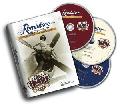 | "Reminisce Through The Decades - The 1940s" [Reiman Publns Aug 2007]
Disk 1 is a one-hour documentary film, directed by Bill Clark; disk 2 is a
slide show of 1200 still photographs; disk 3 is three hours of interviews
Memory Lane Company color DVD set [8/2007] 3 disks for $15.93
official site
|
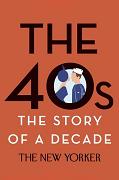 | "The 40s: The Story of A Decade" [2014]
from The New Yorker Magazine, Introduction by David Remnick
contributors include: W.H. Auden, Elizabeth Bishop, John Cheever, David Denby, Janet Flanner,
John Hersey, Langston Hughes, Shirley Jackson, Jill Lepore, A.J. Liebling, William Maxwell,
Carson McCullers, Louis Menand, Joseph Mitchell, Vladimir Nabokov, Ogden Nash, John O’Hara,
George Orwell, George Packer, V.S. Pritchett, Lillian Ross, Zadie Smith, Stephen Spender,
Lionel Trilling, Rebecca West, E.B. White, Williams Carlos Williams, and Edmund Wilson
Kindle Edition from Random House [5/2014] for $11.99
Random House 9½x6½ hardcover [5/2014] for $20.25
|
- 1940: First Dairy Queen® soft ice cream stand opened.
- 1940: Publication of the novel "Lassie Come Home" by English-American author Eric Knight [1897-1943], which began the Lassie the Dog franchise in movies and on television.
- 1940 Feb 12: Debut of weekly radio program "The Adventures of Superman", starring Bud Collyer.
- 1940 March: The first of Alan Turing's secret electromechanical 'bombe' machines for decoding Enigma was installed at Bletchley Park in England.
- 1940 March 1: Publication of "Native Son" by Richard Wright.
- 1940 March 4: Kings Canyon National Park in California was established.
- 1940 March 18: German Chancellor Adolf Hitler and Italian Prime Minister Benito Mussolini met at Brenner Pass on the Austrian border; Italy re-confirmed the Pact of Steel, joining Germany's war against France & England.
- 1940 April 23: About 200 people died in the Rhythm Night Club fire in Natchez, Mississippi.
- 1940 May 10: Winston Churchill became Britain's Prime Minister (until July 1945).
- 1940 June 10: Italy declared war on France and Britain; Canada declared war on Italy.
- 1940 June 14: German troops entered Paris, France.
- 1940 June 14: The Nazis opened the Auschwitz concentration camp in German-occupied Poland.
- 1940 June 24: France signed an armistice agreement with Adolph Hitler just eight days after German troops overran Paris, France.
- 1940 July 1: Publication by John C. Winston Company of Philadelphia, PA of the classic novel "Lassie Come Home" by English-American author Eric Knight [1897-1943], which begat the long-running Lassie the Dog movie & television franchise.
- 1940 July 10: Beginning of the Battle of Britain, as German Luftwaffe aircraft attacked southern England.
- 1940 Aug 21: Exiled Bolshevik leader Leon Trotsky [1879-1940] was assassinated by a Russian agent at his home in the Coyoacán borough of Mexico City.
- 1940 Sept 7: Nazi Germany began its initial blitzkrieg ('lightning war') air attacks on London, England; the 'blitz' lasted for eight months.
- 1940 Sept 14: Congress passed the Selective Service Act, establishing the first peacetime military draft in U.S. history; signed into law by President Roosevelt next day.
- 1940 Sept 15: Date in the Battle of Britain when 'the tide turned', as Britain's Royal Air Force inflicted heavy losses on Germany's Luftwaffe attackers.
- 1940 Oct 1: Opening of the first section of the Pennsylvania Turnpike, running 160 miles from Pittsburgh to Carlisle.
- 1940 Oct 9: Birthday of The Beatles band member John Lennon 1940-80] in Liverpool, England; he was assassinated at age 40 in
New York City.
- 1940 Oct 24: The 40-hour work week took effect, under the Fair Labor Standards Act of 1938.
- 1940 Oct 28: Italy invaded Greece.
- 1940 Oct 29: The United States began its first peacetime draft for military service.
- 1940 Nov 7: The new Tacoma Narrows Bridge in Washington State, known to flex during windstorms, collapsed into Puget Sound; the only fatality was a dog.
- 1940 Nov 14: German planes destroyed most of the English town of Coventry, West Midlands.
- 1940 Dec 21: Birthday of American musician Frank Zappa in Baltimore, Maryland;
he died in 1993 in Los Angeles, California at age 52.
- 1940 Dec 29: Nazi Germany dropped incendiary bombs on London, England, setting off what became known as 'The Second Great Fire of London'.
- 1940 Dec 30: California's first freeway opened, the Arroyo Seco Parkway between Downtown Los Angeles and Pasadena.
- 1941: General Mills introduced 'Cheerioats' as the first ready-to-eat oat cereal; name changed to Cheerios in 1945 for legal reasons.
- 1941: "Classics Illustrated" began publishing comic book versions of 'great literature'; the series produced almost 300 issues before 1970; recent attempts to revive the series as paper and ebook versions have not been successful.
- 1941 Jan 6: President Roosevelt's State of The Union Address outlined
'The Four Freedoms': freedom of speech and expression; freedom of every person to
worship [a deity] in his own way [or not]; freedom from want; and freedom from fear.
- 1941 Feb 4: Founding of the United Service Organizations aka 'The U.S.O.'.
- 1941 March: Launch of Captain America in Captain America Comics issue #1; company is now part of Marvel Entertainment LLC, a division of
The Walt Disney Company.
- 1941 March 22: The Grand Coulee hydroelectric dam on the Columbia River in central Washington State officially began operation; with a third power station completed in 1974, it is the largest electric power-producing facility in the United States.
- 1941 May 1: Premiere of Orson Welles's masterpiece "Citizen Kane" at the R.K.O. Palace Theatre in New York City.
- 1941 May 6: Joseph Stalin assumed the position of premier (Chairman of The Council of People's Commissars) of the Soviet Union, replacing V.M. Molotov.
- 1941 May 24: The German battleship Bismarck sank the British battlecruiser HMS Hood in the North Atlantic; 1,415 Royal Navy sailors were lost.
- 1941 May 24: Birthday of music legend Bob Dylan {nee Robert Zimmerman} in Duluth, Minnesota.
- 1941 May 27: With war tension growing around the world, President Roosevelt proclaimed an "unlimited national emergency".
- 1941 July 7: Delivery to U.S. Army of Willys MA 4x4 vehicle, later named the Jeep.
- 1941 July 25: President Roosevelt froze Japanese assets in the U.S. in retaliation for Japan's occupation of southern Indochina.
- 1941 Aug 14: U.S. President Roosevelt & British Prime Minister Winston Churchill issued the Atlantic Charter.
- 1941 Aug 30: German forces approaching Leningrad, Russia cut off the remaining rail line to/from the city.
- 1941 Sept 8: Beginning of the 900-day Seige of Leningrad in Russia by Nazi forces.
- 1941 Sept 8: Birthday of independent U.S. Senator Bernie Sanders in Brooklyn,
New York; he ran for President in 2015-2016, losing to
Hillary Clinton in the Democratic primary election.
- 1941 Sept 11: Groundbreaking ceremony for the Pentagon building in Washington, DC.
- 1941 Sept 27: Launch of the first 14 rapidly-built 'Liberty' U.S. military cargo ships.
- 1941 Oct 14: Singer-songwriter Paul Simon was born in Newark, New Jersey.
- 1941 Oct 21: Superheroine Wonder Woman debuted in All Star Comics issue #8, published by All-American Comics in New York City.
- 1941 Oct 23: World premiere of Walt Disney's animated feature film "Dumbo" in New York City.
- 1941 Oct 31: Despite the United States being officially neutral, the U.S. Navy destroyer Reuben James on convoy duty off Iceland was torpedoed by a German U-boat with a loss of 115 lives.
- 1941 Oct 31: Construction on the Mount Rushmore National Memorial was completed.
- 1941 Nov 25: The United States delivered the Hull Note to Japanese diplomats; Prime Minister Tojo Hideki rejected U.S. demands because they were an overt ultimatum.
- 1941 Nov 26: Japan's Emperor Hirohito gave approval to his military to proceed with plans to wage war against the United States, Britain, and the Netherlands.
- 1941 Dec 1: Japan's Emperor Hirohito gave the final approval to attacking American, British, and Dutch territories by Japanese naval forces already enroute.
- 1941 Dec 7: Japanese attack on Pearl Harbor in Hawai'i, plus attacks in Hong Kong, Wake Island, Guam, the Philippine Islands, and Malaya.
- 1941 Dec 8: U.S. Congress declared war on Japan.
- 1941 Dec 11: Germany and Italy declared war on the United States, who responded in kind.
- 1941 Dec 23: Embattled American forces on Wake Island surrendered to the Japanese.
- 1941 Dec 25: Japan announced the surrender of the British-Canadian garrison at Hong Kong.
- 1941 Dec 26: British Prime Minister Winston Churchill addressed a joint meeting of the U.S. Congress.
- 1942:
- America's first parking meter ordinance passed in Santa Ana, California.
- Production of Hershey's Kisses candies suspended (until 1949) as tin foil/aluminum foil was needed for the war effort.
- The corn dog was invented by Carl & Neil Fletcher for sale as 'Corny Dogs' at the State Fair of Texas.
- 1942 Jan 2: Japanese forces captured the Philippine capital of Manila.
- 1942 Jan 7: Japanese forces began a seige against American & Filipino defenses at Bataan.
- 1942 Jan 16: Actress Carole Lombard, 33-year-old wife of Clark Gable, and others
died in a plane crash near Las Vegas, Nevada while returning home from a war bond promotion tour.
- 1942 Feb 17: Birthday of Huey P. Newton [1942-1989] in Monroe, Louisiana; he co-founded the Black Panther Party for Self-Defense and was assassinated in Oakland,
California by a member of the prison-based Black Guerilla Family.
- 1942 Feb 19: President Roosevelt signed
Executive Order #9066 giving the military the authority to
relocate and intern Japanese-Americans and Japanese nationals living in the U.S.; German-Americans and German nationals
were rounded up and relocated from the East Coast, as well as over 10,000 Italian-Americans and Italian nationals.
- 1942 March 8: Official beginning of construction of the 1,390-mile-long Alaska-Canada [AlCan] Highway.
- 1942 March 18: President Roosevelt signed Executive Order #9102 authorizing
the War Relocation Authority.
- 1942 March 23: Federal troops began evacuating over 100,000 Japanese-Americans from their West Coast homes to internment
centers farther inland, including Manzanar in the California desert, Granada in Colorado, Heart Mountain in
Wyoming, Topaz Center at Delta in Utah, and the Gila River Reservation in Arizona.
Spirit of America Bookstore's World War II Internment Camps Page
- 1942 April 9: American & Filipino defense forces at Bataan surrendered to the Japanese.
- 1942 June 7: American forces won the 70-hour Battle of Midway, a decisive victory over the Imperial Japanese Navy.
- 1942 June 10: German forces destroyed the town of Lidice, Czechoslovakia in retaliation for the killing of Nazi official Reinhard Heydrich; based on incorrect
intelligence information, the German army massacred 173 male residents and sent the women and children to die in concentration camps.
- 1942 June 11: The United States signed a 'lend-lease' agreement to aid the Soviet Union's war effort.
- 1942 June 12: Four German soldiers landed by U-boat on Long Island, New York as part of Operation Pastorius to commit sabotage in the U.S.
- 1942 June 16: Four more German soldiers landed by U-boat at Ponte Vedra Beach, Florida as part of Operation Pastorius to commit sabotage in the U.S.
- 1942 June 18: Birthday of musician Paul McCartney in Liverpool, England.
- 1942 June 21: A Japanese submarine fired upon Fort Stevens at the mouth of the Columbia River in Oregon; the only facility damaged was the baseball field.
- 1942 June 21: German forces led by Generaloberst Erwin Rommel captured the Libyan city of Tobruk. (Tobruk was retaken by the Allies in November 1942.)
- 1942 July 6: The Frank family of four entered a 'secret annex' in an Amsterdam building, and were later joined by four others hiding from the Nazis; they were betrayed
two years later and sent to death camps. Their ordeal was immortalized by publication of Anne Frank's diary in 1952.
- 1942 July 8: After one of the spies of Operation Pastorius turned himself in, FBI Chief J. Edgar Hoover rounded the others up and claimed all credit; all eight
were tried at a military tribunal and sentenced to death on August 1st; F.D.R. commuted the sentences of two who co-operated (they were later deported).
- 1942 July 20: The first detachment of the Women's Army Auxiliary Corps - later known as WACs - began basic training at Fort Des Moines, Iowa.
- 1942 July 20: Congress established the U.S. Legion of Merit, which is awarded to U.S. military personnel or to military and civilian personnel of foreign governments.
- 1942 July 22: The German Army began transporting Jews from the Warsaw {Poland} Ghetto to the Treblinka extermination camp.
- 1942 Aug 7: American & allied forces landed at Guadalcanal, the largest island in the Solomons of the Southwest Pacific; after bitter fighting, the island was declared
secure by weary but triumphant Allied Forces on 9 February 1943.
- 1942 Aug 8: Six members of the failed Nazi Abwehr Operation Pastorius sabotage mission were electro-cuted and buried in a potter's field in Blue Plains, near Anacostia, Washington.
recent article on discovery & removal of a headstone/memorial placed in Blue Plains by American Nazis, circa 1970
- 1942 Aug 8: World premiere of Walt Disney's animated feature "Bambi" in London, England.
- 1942 Aug 13: U.S. premiere of Walt Disney's animated feature "Bambi" at New York City's Radio City Music Hall.
- 1942 Sept 15: The aircraft carrier USS Wasp (CV-7) was torpedoed by a Japanese submarine south of the Solomon Islands at around 2:45pm; the captain ordered 'abandon ship' at 3:20pm; the badly-damaged ship was sunk by the U.S. Navy that evening.
- 1942 Oct 3: President Roosevelt established the Office of Economic Stabilization.
- 1942 Oct 23: The British Army under Lt. Gen Bernard Montgomery launched a major offensive against Axis forces at El Alamein in Egypt.
- 1942 Oct 26: Japanese warplanes badly damaged the aircraft carrier USS Hornet in the Battle of the Santa Cruz Islands; the ship sank early the next morning.
- 1942 Nov: Coffee rationing began in America, limiting individuals to one pound of coffee every five weeks.
- 1942 Nov: The Allies took the Libyan city of Tobruk back from occupying German forces.
- 1942 Nov 4: Axis forces retreated from El Alamein in Egypt to Tunisia, the first major European Theatre victory for the Allies in World War II.
- 1942 Nov 8: The Allies began Operation Torch, successfully landing U.S. and British forces in French North Africa (Algeria and Morocco).
- 1942 Nov 11: Germany completed its occupation of France.
- 1942 Nov 12: The Battle of Guadalcanal began between the U.S. Navy and the Japanese; most of the American ships were sunk, but the Japanese retreated.
- 1942 Nov 13: President Roosevelt signed a law lowering the draft age from 21 to 18 years of age.
- 1942 Nov 17: Birthday of movie director Martin Scorsese in Queens, New York.
- 1942 Nov 19: Russian forces launched a winter offensive along the Don River front against the German Army.
- 1942 Nov 20: The 1,390-mile-long Alaska-Canada [AlCan] Highway was officially dedicated after only eight months of construction; the highway opened to traffic the next day.
- 1942 Nov 20: Birthday of U.S. President #46 Joseph Robinette 'Joe' Biden, Jr. in Scranton, Pennsylvania [1942].
- 1942 Nov 26: President Roosevelt ordered nationwide gas rationing, effective December 1st.
- 1942 Nov 28: A fire destroyed the Cocoanut Grove nightclub in Boston; 492 people died, with hundreds more injured.
- 1942 Dec 2: First demonstration of an artificially-created and self-sustaining nuclear chain reaction at the University of Chicago.

- 1942 Dec 4: President Roosevelt ordered the dismantling of the Works Progress Administration jobs program.
- 1943: John Tyson purchased his first chicken farm, located in Springdale, Arkansas; incorporated Tyson Feed & Hatchery in 1947.
- 1943: The Slinky toy was accidentally invented by Richard James.
- 1943 Jan 14: Casablanca conference meeting of President Roosevelt,
Britain's Prime Minister Winston Churchill, and France's Gen. Charles de Gaulle.
- 1943 Jan 15: Completion of construction of the Pentagon building in Arlington, Virginia, headquarters of the U.S. Department of War.
- 1943 Jan 18: The Soviet Union broke thru the long Nazi seige of Leningrad by opening a narrow land corridor; it took another year to fully repulse the German Army.
- 1943 Jan 18: U.S. wartime ban issued on pre-sliced bread (aimed at reducing bakeries' demand for metal replacement parts).
- 1943 Feb 7: The United States began rationing of shoes, limited to three pairs per person for the rest of the year.
- 1943 Feb 13: Founding of the United States Marine Corps Women's Reserves.
- 1943 March 2: Three-day Battle of the Bismarck Sea in the southwest Pacific; U.S and Australian warplanes inflicted heavy damage on an Imperial Japanese convoy.
- 1943 March 29: The United States began rationing of meat & fats & cheese.
- 1943 April 13: President Roosevelt dedicated the Jefferson Memorial in Washington, DC.
- 1943 May 7: Publication of philosopher Ayn Rand's novel "The Fountainhead"; the book gradually became a bestseller and was made into a 1949 movie starring Gary Cooper and directed by King Vidor.
- 1943 May 29: The cover of the Saturday Evening Post displayed illustrator Norman Rockwell's portrait of
Rosie The Riveter.
- 1943 June: The Zoot Suit Riots took place over many days in various parts of Los Angeles and Southern California, with mobs of white American civilians and servicemen on leave attacking Hispanics and others wearing 'zoot suits'; at least 150 people were injured, and as many as 500 Latinos were arrested on various charges. { June 2017 article in Yes! Magazine by Angela Fichter }
- 1943 June 1: The Germans shot down a civilian flight from Portugal to England, killing all 17 on board, including actor Leslie Howard.
- 1943 June 9: President Roosevelt signed the Current Tax Payment Act of 1943 which authorized deducting/withholding from paychecks for the income tax.
- 1943 June 16: The U.S. Supreme Court ruled 6-3 in West Virginia State Board of Education v. Barnette that public school students could not be forced to salute the flag of the United States.
- 1943 June 16: Comedian Charlie Chaplin (age 54) married his fourth wife Oona O'Neill
(age 18), daughter of playwright Eugene O'Neill in Carpenteria, California.
- 1943 June 20-22: Three days of race-related rioting erupted in Detroit, Michigan; 34 people were killed, 433 injured (possibly triggered by the Zoot Suit Riots in California).
- 1943 Jun 24-25: Battle of Bamber Bridge in Lancashire, England - Afro-American soldiers of the racially-segregated 1511 Quartermaster Truck Regiment faced off with white American military police; the British town was not segregated, so Afro-American soldiers were free to eat or drink anywhere; the U.S. Army demanded that the town adopt America’s racist practices, but the townspeople instead put up “BLACKS ONLY DRINKING PUB” signs, which infuriated the military police. The military police went to town and tried to arrest Afro-American soldiers; guns were fired, and when word spread back at camp that black soldiers had been shot, scores of men formed a crowd, some carrying rifles; by midnight more American military police arrived in town with a machine gun-equipped vehicle, so the black soldiers had no choice but to get rifles from British stores while others barricaded themselves back on base, so now it was American white soldiers versus American black soldiers. This lead to the death of one soldier and injury of 7; a court martial convicted 32 Afro-American soldiers of mutiny and related crimes. Back in America the battle was hushed up because they didn’t want the country to find out that they were fighting their own soldiers which would anger the black population and weaken the morale on the Home Front. A monument was erected to honor the five wounded military police; there is no monument to the one dead Afro-American soldier or the several wounded.
- 1943 July 1: Federal 'pay as you go' income tax withholding began.
- 1943 July 28: President Roosevelt announced the end of coffee rationing in America.
- 1943 Aug 2: The U.S. Navy patrol boat PT-109 was rammed and sunk by the Japanese destroyer Amagiri off the Solomon Islands; two crewmen died, the boat's commander LtJG. John F. Kennedy and ten other survivors swam several miles to a nearby island.
- 1943 Aug 17: Allied conquest of Sicily completed as U.S. and British forces took Messina.
- 1943 Aug 25: U.S. forces liberated New Georgia island (in the Solomon Islands) from the Japanese.
- 1943 Oct 10: Gen. Chiang Kai-shek took the oath of office as president of China.
- 1943 Oct 14: Radio Corporation of America completed sale for $8 million to businessman Edward J. Noble of its N.B.C. Blue Network, soon renamed the American Broadcasting Company.
- 1943 Oct 16: Chicago Mayor Kelly officially opened the new State Street Subway, the city's first.
- 1943 Nov 22: President Roosevelt, Britain's Prime Minister Winston Churchill, and Nationalist Chinese leader Chiang Kai-shek met in Cairo, Egypt to discuss plans for the defeat of Japan.
- 1943 Nov 23: U.S. forces captured Tarawa and Makin atolls in the Gilbert Islands of the South Pacific from the Japanese.
- 1943 Nov 29: General Eisenhower and Italy's Marshal Pietro Badoglio signed an armistice aboard the British ship HMS Nelson off Malta.
1943 Dec: First demonstration of Britain's Colossus computer.
- 1943 Dec 24: President Roosevelt appointed Gen. Eisenhower as supreme commander of the Allied forces.
- 1944: Piccadilly Cafeteria chain was founded in Baton Rouge, Louisiana.
- 1944 Jan 16: Gen. Dwight D. Eisenhower took command of the Allied Expeditionary Forces in London, England.
- 1944 Jan 18: Official end of the Nazi siege of Leningrad in the Soviet Union.
- 1944 April 22: U.S. forces began invading Japanese-held New Guinea with amphibious landings at Hollandia and Aitape.
- 1944 June 6: 'Operation Overlord', the WWII invasion of Normandy's beaches, began; the event is referred to as 'D-Day', and was the delivery of 160,000 troops across the English Channel using 5,000 boats with aircover and support by 13,000 aircraft.
- 1944 June 15: American forces began their successful invasion of Saipan in the Marianas Islands, while U.S. B-29 Superfortress bombers carried out their first raids on Japan, from bases in China.
- 1944 June 19: The two-day Battle of The Philippine Sea began, which was won by the Allies.
- 1944 June 16: Execution by electric chair of George Stinney, Jr., a 14-year-old Afro-American; he was put on trial in South Carolina for the murder of two white preteen girls. The whole affair was a travesty: his appointed lawyer specialized in tax law, the trial lasted just two hours (only one person testified), there were no appeals, and the farcical execution (George stood 5'1" and weighed just over 90 pounds) took place a mere 85 days after the killings. (Stinney's conviction was vacated in December 2014 based on violations of the Sixth Amendment.)
- 1944 June 22: President Roosevelt signed the G.I. Bill of Rights, officially known as the Servicemen's Readjustment Act of 1944.
- 1944 June 27: American forces liberated the French seaport of Cherbourg.
- 1944 July 1-July 22: Bretton Woods Conference in New Hampshire, attended by representatives of all 44 Allied nations, to set up regulation of the international monetary and financial order after the conclusion of World War II. Results include the World Bank, the International Bank for Reconstruction and Development (I.B.R.D.), the General Agreement on Tariffs and Trade (G.A.T.T.), and the International Monetary Fund (I.M.F.).
- 1944 July 17: Navy munitions explosion at Port Chicago, California killed 320 sailors, followed by 'mutiny' of 258 Afro-American sailors protesting unsafe working conditions.
- 1944 July 21: American forces landed on Guam in the South Pacific.
- 1944 Aug 1: Beginning of the Warsaw Uprising in Poland, a revolt against Nazi occupation that was crushed after two months.
- 1944 Aug 4: After two years in hiding in Amsterdam, the Frank family and others were betrayed and arrested by the Gestapo and sent to death camps; 15-year-old diarist Anne Frank died a year later at the Bergen-Belsen concentration camp.
- 1944 Aug 7: Formal delivery from I.B.M. of the Automatic Sequence Controlled Calculator {renamed the Harvard Mark I computer}, the first large-scale fully-automatic digital computer - using vacuum-tube technology, it weighed 10,000 pounds.
- 1944 Aug 9: Debut poster of the Smokey Bear 'Prevent forest fires' advertising campaign.
- 1944 Aug 9: Mutiny by 258 Afro-American sailors at Port Chicago, California to protest unsafe working conditions after a munitions explosion killed 320 sailors; 50 mutineers were court-martialed, fined, and imprisoned.
- 1944 Aug 12: U.S. Navy Lieutenant Joseph P. Kennedy, Jr. (older brother of future U.S. president John F. Kennedy) and his co-pilot were killed when their BQ-8 test plane exploded over England.
- 1944 Aug 15: Allied forces landed in southern France in Operation Dragoon.
- 1944 Aug 25: Allied forces liberated Paris, France after four years of occupation by Nazi Germany.
- 1944 Aug 29: The citizens of Paris, France cheered 15,000 American troops marching down the Avenue des Champs-Élysées.
- 1944 Sept 2: Navy bomber pilot Lt. George H.W. Bush was shot down by Japanese forces over the Bonin Islands; his two crew members died. He was rescued by the submarine USS Finback.
- 1944 Oct 3: U.S. Army troops cracked the 'Siegfried Line' defenses north of Aachen, Germany (the Germans called it 'Westwall').
- 1944 Oct 8: Debut of "The Adventures of Ozzie & Harriet" on C.B.S. Radio.
- 1944 Oct 2: German troops crushed the two-month-long Warsaw Uprising; the Nazis killed as many as 200,000 civilians in house-to-house atrocities.
- 1944 Oct 20: Gen. Douglas MacArthur stepped ashore at Leyte in the Philippines, 2½ years after promising "I shall return".
- 1944 Oct 21: U.S. troops captured the German city of Aachen, near the border with Belgium & Holland.
- 1944 Oct 27: Birthday of mystery author Judith Ann (J.A.) Jance in South Dakota; she lives in Washington State and in Arizona.
- 1944 Oct 30: Premier performance of Martha Graham's ballet "Appalachian Spring" at the Library of Congress in Washington, DC; music was by Aaron Copeland.
- 1944 Nov 7: President Roosevelt was elected to an uprecedented fourth term in office, defeating Republican New York Governor Thomas E. Dewey with 432 electoral votes to Dewey's 99.
- 1944 Dec 13: A Japaneze kamikaze attack on the cruiser USS Nashville killed more than 130 American sailors; the ship was decommissioned in 1950 and sold to the Chilean Navy in 1951 and scrapped in 1985.
- 1944 Dec 17: The U.S. Army announced that it was ending exclusion of Japanese-Americans from the West Coast.
- 1944 Dec 18: The U.S. Supreme Court issued two rulings: the wartime relocation of Japanese-Americans (and others) was declared constitutional, while detainment of undeniably-loyal Americans of foreign ancestry could not continue.
- 1944 Dec 26: During the Battle of The Bulge in Bastogne, Belgium, the U.S. Army 4th Armored Division relieved embattled 101st Airborne Division troops.
- 1944 Dec 27: Twenty-eight nations signed the agreement creating the World Bank.
- 1945 Jan 9: American forces began landing at Lingayen Gulf in the Philipines.
- 1945 Jan 20: Franklin D. Roosevelt was inaugurated as President for an
unprecedented fourth term, with his third Vice President, the U.S. Senator from Missouri, Harry S. Truman.
- 1945 Jan 27: The Russian Army liberated the concentration camp inmates at Auschwitz-Birkenau in Poland.
- 1945 Jan 31: Pvt. Eddie Slovik, age 24, was executed by firing squad in France for desertion, the first U.S. soldier to receive such a sentence since the U.S. Civil War.
BOOK: "The Execution of Private Slovik" by Wm. Bradford Huie
- 1945 Feb 1: The north tube of the Lincoln Tunnel was opened to the public, allowing more automobile traffic underneath the Hudson River between New York City and New Jersey. (The center tube opened in 1937 and the south tube in 1957.)
- 1945 Feb 11: F.D.R & Churchill & Stalin signed the Yalta Agreement.
- 1945 Feb 13: Allied bombers destroyed the German city of Dresden, killing 135,000 civilians.
BOOK: "The Destruction of Dresden" by David Irving, American edition 1964 from H R & W
NOVEL: "Slaughterhouse Five" [1969] by Kurt Vonnegut, Jr. [1922-2007]
- 1945 Feb 16: American troops landed on the island of Corregidor in the Philippines.
- 1945 Feb 19: The U.S. Marine Corps began landing 30,000 troops on the island of Iwo Jima, commencing a month-long battle to conquer Japanese forces.
- 1945 early March: Teenage Jewish diarist Anne Frank died of typhus at the Nazi concentration camp in Bergen-Belsen, Germany.
- 1945 March 22: The Arab League was formed with the adoption of a charter in Cairo, Egypt; there were six founding members, membership in 2015 is 22 countries.
- 1945 April 1: U.S. forces launched the amphibious invasion of Okinawa, Japan.
- 1945 April 11: U.S. armored troops liberated the Buchenwald Nazi slave labor camp near Weimar, Germany.
- 1945 April 12: Franklin Delano Roosevelt died at Warm Springs, Georgia at age 63; Vice President Harry S. Truman became President.
- 1945 April 15: British & Canadian troops liberated the Nazi concentration camp at Bergen-Belsen, Germany.
- 1945 April 16: A Soviet submarine torpedoed and sank the freighter MV Goya in the Baltic Sea; an estimated 7,000 people died, consisting of Norwegian crew, civilian refugees, and wounded German soldiers.
- 1945 April 16: U.S. troops reached Nuremberg, Germany.
- 1945 April 16: New President Harry S. Truman gave his first speech to Congress, in which he pledged to carry out the war and peace policies of his late predecessor, Franklin Roosevelt.
- 1945 April 20: Allied forces took control of the cities of Nuremberg and Stuttgart in Germany.
- 1945 April 25: Delegates from 50 countries met in San Francisco to organize the United Nations.
- 1945 April 28: Italian dictator Benito Mussolini was shot to death by a mob of partisans in a remote village near the Swiss border.
- 1945 April 29:
- American soldiers liberated the Dachau concentration camp near Munich, Germany.
- Adolph Hitler married Eva Braun and designated Admiral Karl Doenitz as successor President of Germany.
- The German armed forces in Italy surrendered to the allies.
- 1945 April 30: As Soviet tanks neared his bunker headquarters, Germany's Führer Adolph Hitler committed suicide by cyanide and pistol; his body and that of his bride Eva Braun were doused in gasoline and set afire.
- 1945 May 7: Germany surrendered unconditionally.
- 1945 May 7: Rehearsal explosion prior to the atomic bomb test (code named 'Trinity'), during which 98 tons of high explosive spiked with radioactive isotopes was detonated in the New Mexico desert.
- 1945 May 8: "V-E Day" proclaimed for celebration of victory by Allies in Europe.
- 1945 July 6: President Truman signed an executive order establishing the Medal of Freedom.
- 1945 July 16: First atomic bomb test (code named 'Trinity') in the New Mexico desert.
- 1945 July 26: British Prime Minister Sir Winston Churchill resigned when his Conservative Party was soundly defeated in local elections; succeeded by Clement Attlee of the Labour Party.
- 1945 July 28: A U.S. Army B-25 bomber crashed into the Empire State Building in New York City; three crewmen and eleven people in the building died.
{Wikipedia}
- 1945 July 28: The U.S. Senate ratified the United Nations Charter by a vote of 89-2.
- 1945 July 30: The heavy cruiser USS Indianapolis was torpedoed and sunk by a Japanese submarine; only 316 men survived out of about 1,200.
- 1945 Aug 6: Atomic bomb (rated at 20 kilotons) dropped on Hiroshima, Japan, killing an estimated 140,000 people.
- 1945 Aug 8: President Truman signed the U.S. ratification of the United Nations charter.
- 1945 Aug 9: Atomic bomb dropped on Nagasaki, Japan, killing an estimated 74,000 people.
Atomic U.S.A. Pages at Spirit of America
- 1945 Aug 14: President Truman announced that Japan had surrendered unconditionally to the Allies, ending World War II.
- 1945 Aug 15: "V-J Day" proclaimed for celebration of victory by Allies over Japan.
- 1945 Aug 15: Emperor Hirohito announced in a radio address that Japan had accepted terms of surrender to end World War II.
- 1945 Aug 17: Publication of George Orwell's classic tale "Animal Farm".
- 1945 Aug 28: Birthday of filmmaker Robert Greenwald in New York City.
- 1945 Aug 30: Gen. Douglas MacArthur arrived in Tokyo to set up headquarters as Supreme Commander of The Allied Powers, to organize & implement the occupation of Japan.
- 1945 Sept 2: Japan formally surrendered aboard the battleship U.S.S. Missouri in Tokyo Bay.
- 1945 Sept 2: Communist leader Ho Chi Minh declared VietNam an independent republic.
- 1945 Oct 8: Raytheon Mfg. Co. filed for a patent on a microwave cooking process, accidentally discovered by employee Percy Spencer.
- 1945 Oct 24: The United Nations officially came into existence.
- 1945 Oct 25: Taiwan became independent of Japanese colonial rule.
- 1945 Oct 30: The U.S. government announced the end of shoe rationing, effective at midnight.
- 1945 Nov: First French publication of "The Little Prince (Le Petit Prince)" [1943] at Éditions Gallimard
by author & aviator Antoine de Saint-Exupéry [1900-44]
- 1945 Nov 1: Launch of Ebony Magazine, which was geared toward Afro-American readers.
- 1945 Nov 12: Birthday of songwriter-musician Neil Young in Toronto, Ontario, Canada.
- 1945 Nov 16: Founding of U.N.E.S.C.O. (the United Nations Educational, Scientiic, and Cultural Organization) at the conclusion of a conference in London, U.K.
- 1945 Nov 23: End of U.S. wartime rationing of most foods, including meat & butter.
- 1945 Dec 20: The U.S. Office of Price Administration announced the end of wartime rationing of vehicle tires, effective at the New Year.
- 1945 Dec 27: Representatives of twenty-eight nations signed an agreement creating the World Bank and the International Monetary Fund (I.M.F.).
- 1945 Dec 28: The U.S. Congress officially recognized the Pledge of Allegiance.
- 1946:
- Minute Rice® went on the market.
- Furr's Family Dining chain was founded in Hobbs, New Mexico.
- The all-time high in movie ticket sales was four billion in pre-TV 1946.
- 1946 Jan 10: First meeting of the United Nations General Assembly in London, England.
- 1946 Jan 25: United Mine Workers rejoined the A.F.L.
- 1946 Feb 14: The E.N.I.A.C. (short for Electronic Numerical Integrator And Computer) was announced to the public at University of Pennsylvania in Philadelphia; it was designed & built by John W. Mauchly [1907-80] and J. Presper Eckert, Jr. 1919-95]; this was the second general-purpose electronic computer and the first reprogrammable digital computer (in use until October 1955).
- 1946 Feb 1: Norwegian Trygve Lie [1896-68] was chosen to be the first Secretary General of the United Nations.
- 1946 Feb 18: California court case Mendez et al v. Westminster School District, in which a group of civic-minded parents of Orange County successfully sued to end segregation based on national origin (i.e. 'Mexican' kids) in their schools; precursor for Brown vs. Board of Education in May 1954.
- 1946 March 5: British statesman Winston Churchill [1874-1965] delivered his famous 'Iron Curtain' speech at Westminster College in Fulton, Missouri.
- 1946 March 21: The recently-created United Nations Security Council set up temporary headquarters at Hunter College in The Bronx, New York.
- 1946 March 30: The Soviet Union invaded Austria.
- 1946 April 18: Last meeting of the League of Nations [1920-1946].
- 1946 April 18: The International Court of Justice (judicial arm of the United Nations) held its first sitting at The Hague in Netherlands.
- 1946 June 14: Birthday of idiot billionaire Donald John Trump in Queens, New York City.
- 1946 June 24: Birthday of political economist
Robert B. Reich in Scranton, Pennsylvania.
- 1946 July: First official flight into space, when Werner von Braun's 'Operation Paperclip' team launched a V-2 rocket from White Sands Missile Range in New Mexico; the on-board payload included corn seeds and live fruit flies.
- 1946 July 1: Operation Crossroads Alpha test of an above-ground 20-kiloton atomic bomb at Bikini Atoll in the South Pacific.
- 1946 July 5: First public showing of the bikini bathing suit of designer Louis Reard, at an outdoor fashion show at the Monitor Pool in Paris, France.
- 1946 July 22: Jewish extremists {the 'Irgun'} blew up a wing of the King David Hotel in Jerusalem, Palestine; 91 people were killed, mostly British bureaucrats & military, and 46 others were injured.
- 1946 July 25: Operation Crossroads Baker test of an underwater atomic bomb at Bikini Atoll in the South Pacific.
- 1946 Aug 1: President Truman signed the Fulbright Program into law.
- 1946 Aug 1: Founding of the U.S. Atomic Energy Commission.
- 1946 Aug 19: Birthday of Bill Clinton in Hope, Arkansas.
- 1946 Sept 15: Birthday of movie producer-director Oliver Stone in New York City.
- 1946 Sept 20: The first Cannes Film Festival in France opened and ran for 16 days.
- 1946 Oct 15: Nazi war criminal Hermann Goering fatally poisoned himself just hours before he was to be executed.
- 1946 Oct 23: The United Nations General Assembly convened for the first time in New York, at an auditorium in Flushing Meadows, Queens, New York City.
- 1946 Oct 30: R.C.A. publicly demonstrated an all-electronic system of color TV, on a 15x20-inch screen.
- 1946 Nov 16: Founding of U.N.E.S.C.O., the United Nations Educational, Scientific and Cultural Organization at a conference in London, England.
- 1946 Dec 7: Fire broke out at the Winecoff Hotel in Atlanta, Georgia killing 119 people, including the hotel's founder W. Frank Winecoff.
- 1946 Dec 11: Founding of U.N.I.C.E.F., the United Nations International Children's Emergency Fund at a conference in London, England.
- 1946 Dec 19: Troops led by Vo Nguyen Giap and loyal to Marxist revolutionary leader Ho Chi Minh attacked the French in Hanoi, the official start of the First Indochina War.
- 1946 Dec 31: President Truman officially proclaimed the end of hostilities in World War II.
|


![]()
 back to Spirit of America Bookstore homepage
back to Spirit of America Bookstore homepage


